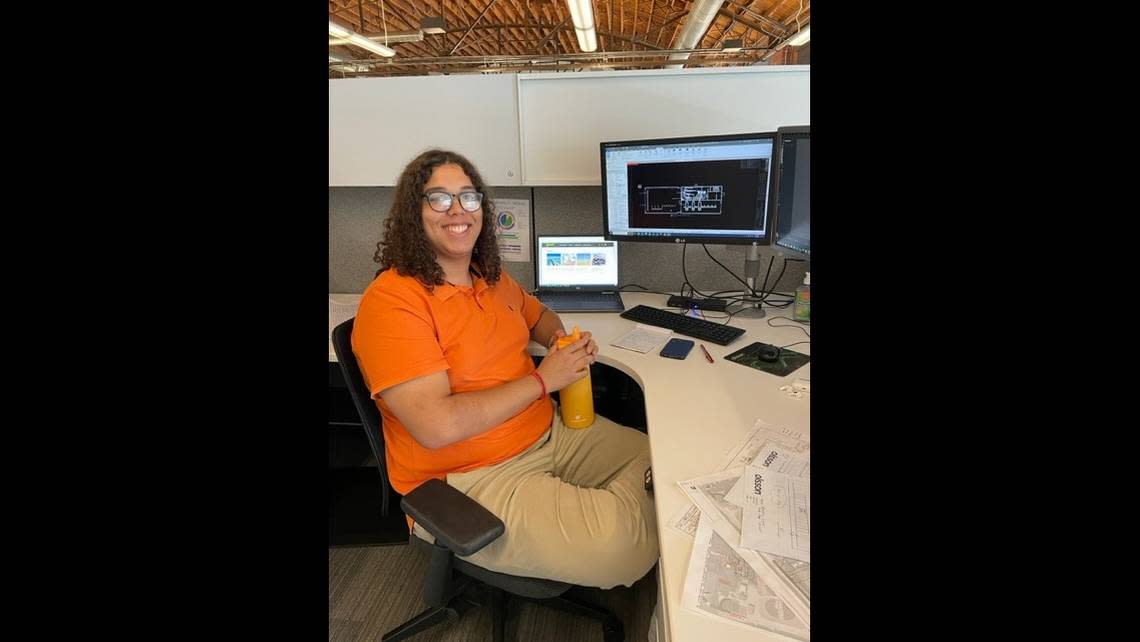Employment after graduation with no debt: It’s possible through innovative LS program

Graduating with no debt and plenty of on-the-job experience sounds like a dream, but it’s been a reality for many Lee’s Summit students for more than 10 years. It’s all part of a University of Central Missouri program at its Missouri Innovation Campus.
Instead of taking on internships for three months in the summertime, as is common for many students, the program helps them partner with local businesses to intern year-round alongside their classes. The internships last for three years.
“That’s probably the biggest carrot of this program, not only for the employers,” said Stan Elliott, director of the Missouri Innovation Campus.
On the educational side, it’s a joint effort from the university, the Lee’s Summit School District and Metropolitan Community College.
Those educators work with the businesses to develop a curriculum that addresses areas where they find new employees tend to be lacking skills. It’s a combination of technical competencies and soft skills such as functioning in a group, time management and multi-tasking.
What started in June 2012 with three business partners — Cerner, DST Systems (now SS&C) and St. Luke’s Health System — in just the systems engineering and networking program has expanded to include more than 70 businesses and six university programs, with a seventh starting next summer.
All the programs are tech-focused, from software development to cyber security. Students interview with companies, and the school matches students based on where they want to go and how the companies ranked them.
To be part of the program, students start taking classes through MCC or UCM the summer after their sophomore year of high school. That concurrent enrollment allows them to finish college two years after graduating from high school.
After their first year of these dual studies, during their senior year of high school, they can join the paid internship program. During the school year, that means they’re working at least two full days a week at their internship, applying their classroom skills to real work.
Once summertime hits, the internship becomes 40 hours a week for 10 weeks. And it’s not getting coffee or making copies — students are doing hands-on work like writing and developing code.
Businesses know interns are getting the skills they need for that company.
“They know that intern will be a fit for company, and they want to make sure their company is a fit for the intern,” Elliott said.
All of this is a lot of work for the students involved, often with evening or weekend classwork, but that time commitment comes with benefits.
The whole idea is to keep engineering and information technology talent in the metro area, and Elliott said 91% of their student interns get hired by the companies they interned with at the end of the program.
Over the three-year internship, he estimated that students get paid $30,000-$35,000. Students also get their first two years of tuition for free.
“The Department of Education told us, as far as we know, that there’s no other program in the country that offers this type of program where a student gets a bachelor’s degree two years after high school graduation, and they have a three-year, year-round paid internship,” Elliott said.
Jeffrey Scarborough graduated in 2020 from UCM after being part of this program via Lee’s Summit North High School. He’s now a senior security analyst at Cyderes.
As an intern with Science Applications International Corporation, he got to work on cyber-security policy.
“No matter which industry, organization, local business that we would work with, we always had that emphasis in whatever major we were working toward,” Scarborough said. “From those lessons that we learned in the classroom, we would quickly be applying those to the job space that we were in.”
He liked being able to take all the theory and put it into practice almost immediately.
“It gave me an amazing opportunity to have that hands-on experience, not only learning in the classroom, going through a simulation but to then work with industry professionals in my field. I still find (that) to be beneficial to the career that I’m working toward today,” Scarborough said.
He loves that the bolstered tech sector in the metro has allowed him to stay in the community and near his family.
“I was always told if I wanted to get into cyber security to pick a coast city, the East Coast, the West Coast, Silicon Valley,” Scarborough said. “To stay here working in a technology field, I think, is truly great for myself.”

